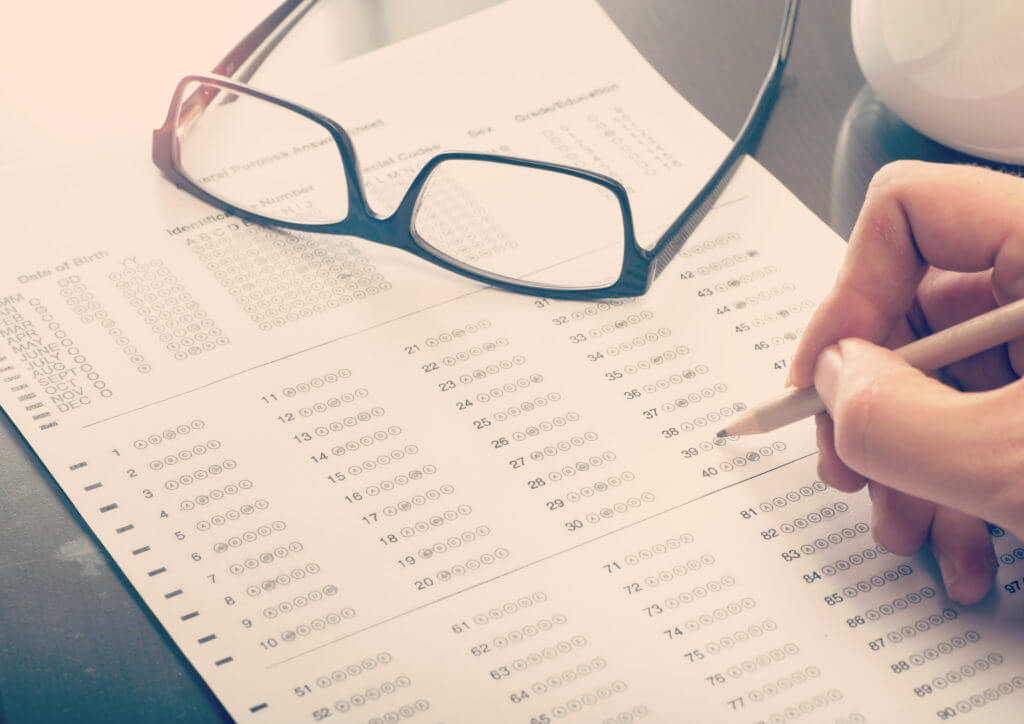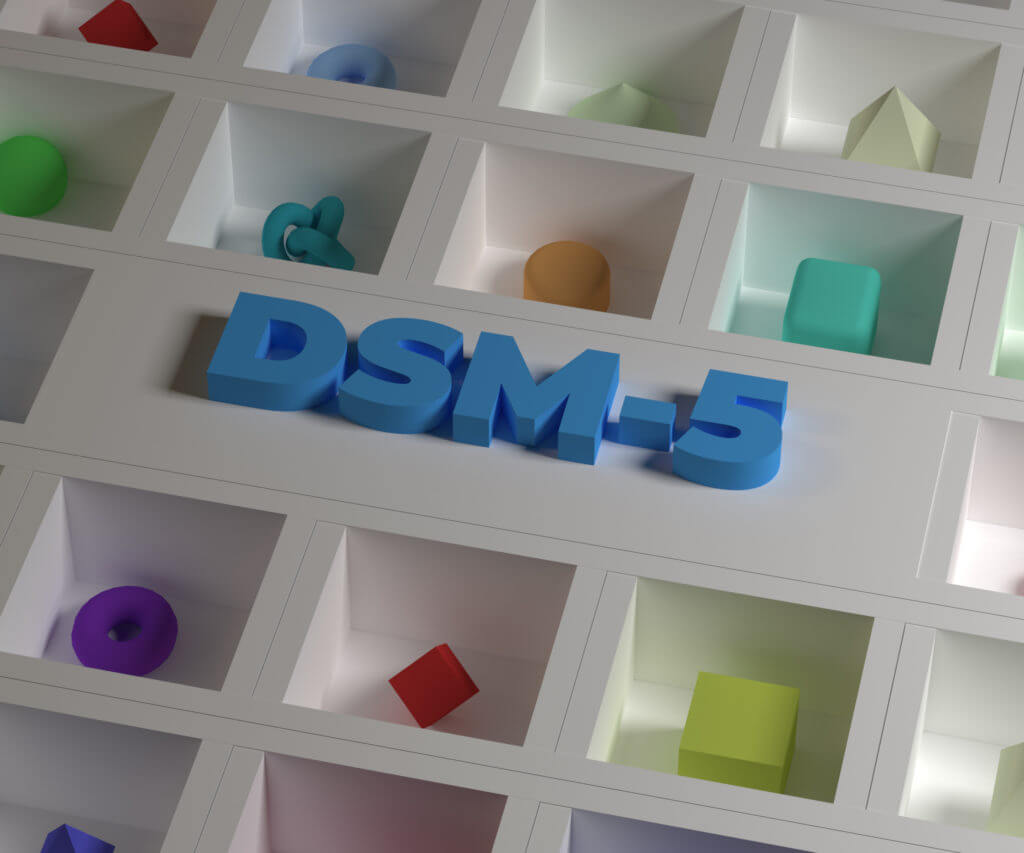
Future mental health counselors who are in college will eventually want to know, “what is the NCMHCE,” what might be required to pass this important test, and how they can access practice exams to be prepared. The National Clinical Mental Health Counseling Examination (NCMHCE) refers to an exam that counselors take to demonstrate that they are competent in different fields. It shows that they excel in the core counseling attributes and are ready for professional practice.
The NCMHCE exam is a division of the National Board for Certified Counselors (NBCC), which is an organization that offers board certification, or national certification, for counselors. Those boards and exams, which are likely a new format of testing for students, help them meet the minimum standards for working as counselors in their states. The NCMHCE exam can help counselors show their competencies in certain areas of counseling too. Most students can take the exams after completing a graduate degree program.
Examinations
The NCMHCE examination is a specific testing format for mental health counseling examination run by a state licensure board organization. This organization offers simulation tests that place professionals in different situations. They receive scores based on how well they perform on those tests. There are 10 different types of simulations available, and the organization allows students to take tests in one simulation, or testing center, at a time. These important exams are a new format of testing for students and allows them to show off their skills and knowledge. Most of those who take the exams do so because they want to become a Certified Mental Health Counselor. There are also options available for those who want to become National Certified Counselors. Any counselor who wants to provide help to veterans through military programs must have some type of certification.
How to Prepare
Students who graduate from accredited degree programs should find these national certification exams quite easy. This is especially true for those who did practicums or internships as part of their studies. However, for test preparation purposes, it is important to be prepared regardless of where students studied. Students often find study material, a study program, and take a practice exam at least once. Practice questions, whether they are multiple choice questions on a paper copy of the NCMHCE exam or in person verbal questions, are a great way to become prepared and ensure a passing score.
Content Covered
As mentioned, the NCMHCE exam has 10 different types of simulations available. When an applicant selects one of the simulations, the organization will create a setting that consists of at least five parts. Some of the examinations feature eight parts. The simulation tests them on how well they can solve problems and treat patients. They’ll work with actors simulating different conditions. The counselor is responsible for deciding the type of condition the patient has the best method of treating that person. They’ll also have the chance to look for and collect evidence that can help them on the exams.
Special Accommodations
According to the NCMHCE, those taking the exams can request special accommodations from the NBCC when registering. There are new NCMHCE exam format options available for those who speak English as a second language, including technology that translates words from English to their native languages and readers they can use during the test. The NBCC can arrange for students to have more time to take the test too. To help future test takers get the information they need, the organization offers a special request online form. They can fill out this form with the type of help they need and speak to someone who works for the organization before taking an exam.
Score Reporting
The registration process is quite simple. When an applicant registers to take a NCMHCE examination, the site will ask them to pick the time and date they want to take the test and to pick a location, often known as a testing center. The site also allows them to pay in advance. Once the organization receives that payment, it will process and send copies of the individual’s score to his or her registered address. If they need to have their passing scores sent to anyone else, they can go online and pay to have those scores sent to a new address.
Counselors must have certification to work with patients in their home states or multiple states. This usually requires a college degree, some fieldwork experience, and a passing score on a certification exam. The NCMHCE offers several examinations that offer certification to professional counselors.
Is the National Clinical Mental Health Counselor Examination a Required Test?
Taking the National Clinical Mental Health Counselor Examination is often a decision made because a student’s state requires the exam. Some states actually require that future counselors take multiple tests, and some states offer different licenses than others. Students who want to practice in a different state than where they currently reside should look up the details for licensing for where they want to live.
For example, students who want to practice in California will need to take the National Clinical Mental Health Counselor Examination and will become Licensed Professional Clinical Counselors (LBCC) after they pass the test. The state department that handles testing and licensing is the Board of Behavioral Sciences, which is located in Sacramento.
On the other hand, students who want to practice in Illinois will contact the Department of Financial & Professional Regulation Division of Professional Regulation, which is located in Springfield. Illinois students can become a Licensed Professional Counselor (LPC) if they take the NCE test, or they may become Licensed Clinical Professional Counselors (LCPC) if they take the National Clinical Mental Health Counselor Examination.
Meanwhile, students in Florida will work with the Board of Clinical Social Work, Marriage and Family Therapy, and Mental Health Counseling when they apply to take the exam. Within Florida, students may apply to become a Licensed Mental Health Counselor (LMHC) after they pass the test or apply to become a Registered Mental Health Intern (RMHI) to help gain the professional experience required to qualify to take the exam.
Preparing for the National Clinical Mental Health Counselor Examination Test
Within its ten simulations, the National Clinical Mental Health Counselor Examination covers everything from assessment administration and treatment planning to the theories that guide group counseling and counseling supervision. The comprehensive nature of the exam demands that students take the time to study as much as possible before taking the exam.
There are a variety of study guides published on the internet that are designed to help students study for the test, as well as to help students understand the DSM-5 and remember its contents. For example, the National Board for Certified Counselors, Inc. offers a relatively affordable preparation guide that is designed to help students familiarize themselves with the simulations on the exam.
The study guide or study program has five clinical simulation problems that have been created by content experts in the field of clinical mental health counseling. The official test has ten clinical simulation problems. Students can purchase the preparation guide directly from the NBCC online store. There are also additional study guides from organizations like the Association for Advanced Training in the Behavioral Sciences and the Psychotherapists Training Institute.
Students who pass the test must have the ability to narrow down a diagnosis where a client has criteria that match multiple disorders. For example, a client in one of the simulations might have criteria that match major depressive disorder as well as persistent depressive disorder. It is the test taker’s responsibility to narrow the diagnosis to one or the other.
Examination Format for the National Clinical Mental Health Counselor Examination
Within each of the ten clinical simulations, there are three components. Students will read a scenario and then complete an information gathering (IG) section and a decision making (DM) section. The scenario introduces the student to necessary information like the age, gender, and presenting problems of the client. After reading the scenario, test-takers will gather relevant information needed to make a diagnosis.
Information gathered might include the family background of the individual, his or her physical health status, and the client’s previous experience in counseling sessions. Providing the correct answers during the information gathering section may require that students choose more than one answer. Students may be penalized if they choose more or fewer answers than have been deemed correct by the test administrators.
Featured Programs
Within the decision making and information gathering sections, students may encounter one of two answer formats. One option will require that students choose the single best option where there might seem to be more than one acceptable option but where most counselors would agree that there is actually one best option in the given circumstances.
The other format is where a student may need to choose multiple options, which is where a combination of actions is required to complete the diagnosis within the simulation. The test will indicate whether a student should choose only one option as the best option or whether the student should select as many answers as he or she thinks is appropriate.
Overall, the examination covers three primary areas that include assessment & diagnosis, counseling & psychotherapy, and administration, consultation, & supervision. The assessment and diagnosis section may require the student to integrate observational data and client assessment information and identify relevant family issues. The counseling & psychotherapy section may require the creation of a plan of treatment for individual counseling.
Studying the Diagnostic and Statistical Manual of Mental Disorders (DSM-5)

Familiarizing oneself with the DSM-5 is a necessary part of the studying process for taking the National Clinical Mental Health Counselor Examination even though students will already know quite a lot about the book from their graduate studies in counseling. The DSM is a list of criteria for diagnosing mental disorders that include descriptions and symptoms of those disorders.
Not only is the DSM used for the purposes of studying and learning about disorders, but professionals also use the book as a way to communicate in a standardized way about various diagnoses. When it was created, the first DCM included a total of 106 different disorders. By the time of the third publication, the number of disorders had increased to 265.
Some of the categories within the DSM include neurodevelopmental disorders, anxiety disorders, dissociative disorders, and bipolar and related disorders. Each new version of the DSM contains several updates and changes to disorders, and some disorders are eliminated completely or changed as research progresses. While studying for the NCMHCE, students may want to examine the DSM-5 fact sheets that are published by the American Psychiatric Association.
Requirements for Taking the Test for CCMHC Certification
There are several requirements that future certified counselors must meet before they can gain eligibility to take the National Clinical Mental Health Counselor Examination. Students must have a graduate degree in counseling or a degree where their main concentration is counseling. The degree must have been earned from an accredited college or university. The program must have contained at least 48 semester hours of coursework at the graduate level in nine specified areas.
Those areas include human growth and development theories in counseling, social and cultural foundations in counseling, helping relationships in counseling, and group counseling theories and processes. Students must also take classes in career counseling and lifestyle development, assessments in counseling, research & program evaluation, and professional orientation to counseling.
Taking the exam also requires that students complete a counseling field experience that is a minimum of six semester hours or ten quarter hours. Further, candidates for CCMHC must prove that they have undertaken at least 3,000 hours of post-master’s counseling experience over the course of two years. At least 100 of those hours must be supervised by a qualified individual.
On the Day of the Test
When a student arrives at the testing site to take the exam, he or she must provide two forms of identification with one form having a photograph. Driver’s licenses and passports are commonly used for identification. The exam is held Monday through Saturday from 8 AM to 5:30 PM, and students should submit their examination application at least 60 days in advance of their preferred testing date.
The test is administered by Pearson VUE, which has an agreement with the Center for Credentialing & Education to provide testing services. There are more than 250 testing centers throughout the United States, and testing dates are normally available during the first two weeks of the month. After registering with the CCE and paying the fee to take the test, students must complete their examination within six months or risk forfeiting their application fee.
After completing the exam, students will receive an unofficial score report if they’ve taken their exam through computer-based testing. To determine when and where to take the test, students should contact their state board, which will offer information on available licenses and the required examinations. In most cases, students will take a computer-based test at an official examination site.
What Happens to Counselors who Fail the Exam?
The National Clinical Mental Health Counselor Examination is nothing to sneeze at and takes serious dedication from students. However, 40 to 45 percent of test-takers actually fail the exam. The good news is that a counselor’s dreams of becoming certified aren’t put permanently on hold after failing the test.
To take the test again, a student must wait three months until he or she is eligible again. Students who have failed the test will often start studying the DSM-5 again and will devote themselves to studying for the entirety of the three months they have to wait. Students who experience severe test anxiety may find it useful to focus on successful test-taking techniques, as well as on the subject matter on the test.
The National Counselor Examination Versus the National Clinical Mental Health Counselor Examination
While researching the exam, counselors might come upon information about the NCE, which is the National Counselor Examination for Licensure and Certification. The NCE is a multiple-choice exam of 200 questions that measures a counselor’s ability to provide effective counseling. The United States military certifies its counselors with the NCE.
Meanwhile, the National Clinical Mental Health Counselor Examination is a series of ten clinical simulations that test a student’s competencies in various areas. Those who want to become licensed counselors in many of the states around the country must take the exam, as well as to gain status as a Certified Clinical Mental Health Counselor (CCMHC). The test is also used by the health systems of the military.
The decision to take the NCE or the National Clinical Mental Health Counselor Examination is one that may come down to what is required by the state where the future counselor wants to practice. State counselor licensure boards may have contracts to offer one or both of the examinations to students. Most students with a goal of becoming a National Certified Counselor will take the NCE, and those who want to become Certified Clinical Mental Health Counselors will take the National Clinical Mental Health Counselor Examination.
About the National Board for Certified Counselors, Inc.
The National Board for Certified Counselors, Inc., which is the organization that students will usually become familiar with when they arrange to take their exam, was founded in 1982. The headquarters of the organization is in Greensboro, North Carolina, and its main focus is to maintain the nation’s certification system for professional counselors.
In its history, the NBCC has certified more than 64,000 counselors in the United States, as well as in dozens of countries around the world. The NBCC is different from other mental health organizations like the American Counseling Association (ACA) and the American Psychological Association (APA) because it doesn’t have members. Rather, the organization keeps a list of counselors who have passed the certification exam.
The NBCC is very active with its government affairs initiatives that are designed to help increase nationwide access to counseling, as well as obtain additional funding for more counselors. Some of the organization’s goals include increasing the number of counselors working for the Department of Veterans Affairs, creating a Federal Occupational Series for Counselors, and recognizing counselors who work for the Indian Health Service.

